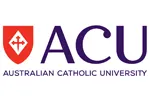

Australia . Cricos: 00004G
Australian Catholic University (ACU)| The award | How you will study | Study duration | Course start | Domestic course fees | International course fees |
|---|---|---|---|---|---|
| UG:Bachelor | Full-time | 4 years | February | - | - |
Use the knowledge acquired in the Bachelor of Psychological Science to become a better nutrition science clinician delivering better treatment outcomes. Understand the motivations for eating behaviours, how habits are formed and ways to increase behavioural change, and learn empathetic and culturally appropriate communication skills.
Minimum Duration:
4 years full-time or equivalent part-time
Campus:
Blacktown, Melbourne, Strathfield
As a nutritionist you will create opportunities for people to learn about food and nutrition, design food products to support a healthy diet, influence food systems to foster sustainability, and advocate for a safe and equitable food supply across the globe. You will understand the science behind food and nutrition including human physiology and biochemistry, and food and culinary nutrition science. The focus on the role of food and nutrition in health promotion and disease prevention for individuals, communities and populations, particularly in at-risk groups, will prepare you for work in the emerging areas of the industry.
In today's fast-paced and challenging world, understanding human behaviour is a vital skill. The Bachelor of Psychological Science will help you understand human functioning in a broad range of professional settings. You will graduate from the degree having completed a sequence in psychology accredited by the Australian Psychology Accreditation Council (APAC) as a Level 1 Program. This sequence will ensure graduates acquire an advanced understanding of human behaviour and mental processes, and develop employable skills that are highly regarded by industry leaders. The degree also helps you prepare for optional further postgraduate study which may lead to registration as a professional psychologist. You will be equipped to make meaningful contributions toward improving the outcomes of clients, customers, colleagues and collaborators in a diverse range of settings including, but not limited to: government departments, private sector, schools, business, and not-for-profit organisations.
Combining the Bachelor of Psychological Science and the Bachelor of Nutrition Science allows for greater insights into both disciplines and, thus, benefits the graduates of the course. For instance, knowledge gained from the Bachelor of Nutrition Science can be applied by clinical psychologists working with eating disordered populations for better treatment outcomes. Further, health psychologists working with chronically ill populations, such as with people with heart disease or Type 2 diabetes, will benefit from knowledge in the area of nutrition science. Nutritionists will benefit from the knowledge gained from a Bachelor of Psychological Science which covers the motivations for eating behaviours, how habits are formed, ways to increase behavioural change, and empathetic and culturally appropriate communication skills. In recent years, there has been a shift in the practice of many nutrition professionals in the area of cardiovascular disease risk factor management, and more specifically overweight and obesity. The focus has shifted away from a reductionist approach to incorporate more holistic strategies to assist clients to change their lives, including their eating behaviours, through the use of mindfulness, and body-acceptance and inclusivity, breaking down diet culture and using non-diet approaches with more successful outcomes. In addition to the professional practice of nutritionists/dietitians and psychologists, research on eating behaviours and approaches to change eating behaviour will only be enriched when researchers come to such topics with an understanding of both disciplines. There is the potential for graduates of this double degree to make a real impact on the lives of individuals, groups and communities through interventions that result in positive changes to health.
An applicant must also comply with the Admission to Coursework Programs Policy.
To be eligible for admission to the course, an applicant must have completed the following prerequisites at year 12, or equivalent:
State Prerequisites
New South Wales
English (Standard) (Band 2) or EAL (Band 3)
Victoria
Units 3 and 4 - a study score of at least 30 in English (EAL) or 25 in any other English
International applicants need to meet the English Language Proficiency requirements as defined in the Admission to Coursework Programs Policy.
English language requirements
Applicants require an academic IELTS minimum overall score of 6.5 (with a minimum score of 6.0 in all bands), or an equivalent acceptable test score as outlined in the Admission to Coursework Programs Policy (see English Language Proficiency).
Below are some suggested courses at other providers that you may also be interested in:
Brain and Cognition Master Degree
Erasmus School of Social and Behavioural Sciences (ESSB), Erasmus University Rotterdam
Find out moreConsider a Foundation or Pathway course at Australian Catholic University (ACU) to prepare for your chosen course:
If you do not meet the entry requirements for this course then consider one of these courses from another institution:
There are 155 other courses listed from Australian Catholic University (ACU). A selection of these are displayed below:
Bachelor of Applied Public Health (Honours) UG:Bachelor
Australian Catholic University (ACU)
Find out moreBachelor of Arts (Western Civilisation)/Master of Teaching (Secondary) UG:Bachelor
Australian Catholic University (ACU)
Find out moreBachelor of Arts/Bachelor of Commerce UG:Bachelor
Australian Catholic University (ACU)
Find out moreBachelor of Arts/Bachelor of Global Studies UG:Bachelor
Australian Catholic University (ACU)
Find out moreJoin the Сưłć´«Ă˝ email list and never miss a chance to turn your study abroad dreams into reality!

Find out more about studying in Australia